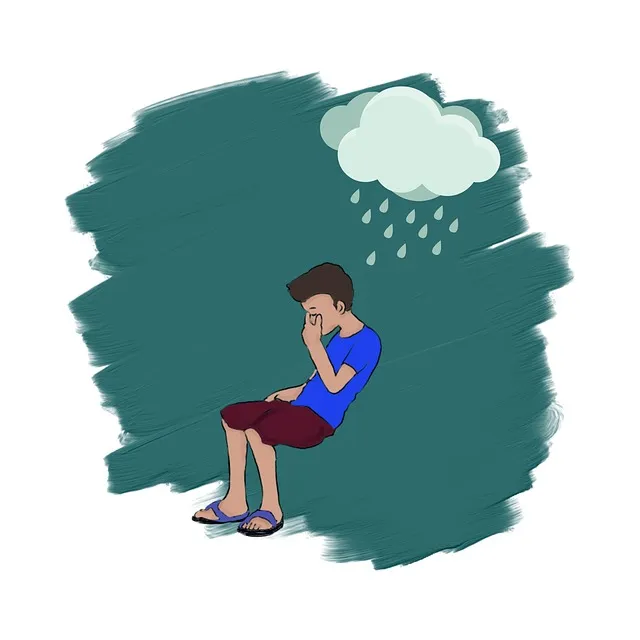Kaiser Permanente mental health locations in Wheat Ridge utilize the Resilience, Frequency, and Moment (RFM) models based on Mind Over Matter Principles to significantly enhance stress management and resilience among individuals. By analyzing behavior patterns, RFM personalizes interventions for healthier coping mechanisms. Public awareness campaigns centered around RFM empower residents with knowledge, aligning with Kaiser Permanente's mission to prevent mental health issues. The locations facilitate resilience exercises, workshops, and support groups, fostering emotional resilience and supportive community environments. Success is assessed through tracking mental wellness improvements, qualitative data, and regular assessments, ensuring program relevance and effectiveness in strengthening Wheat Ridge's mental health landscape.
Resilience is a vital asset in navigating life’s challenges, and the RFM (Resilience, Flexibility, and Mastery) model offers a structured approach to building this strength. This article explores the implementation of RFM exercises in unique contexts, focusing on a case study of Kaiser Permanente mental health locations in Wheat Ridge communities. We’ll delve into how these programs enhance resilience, drawing from successful initiatives that offer valuable insights for promoting well-being and coping mechanisms within these communities.
- Understanding RFM and its Role in Resilience Building
- Kaiser Permanente Mental Health Locations: A Case Study
- Implementing Resilience Exercises in Wheat Ridge Communities
- Measuring Success: Evaluating the Impact of RFM Programs
Understanding RFM and its Role in Resilience Building

At Kaiser Permanente mental health locations in Wheat Ridge, implementing Resilience, Frequency, and Moment (RFM) models can significantly enhance individuals’ ability to cope with stress and adversity. RFM, grounded in the Mind Over Matter Principles, focuses on building resilience by understanding how frequently individuals engage in positive or negative behaviors and when these occur. This approach recognizes that momentary responses to stressful situations play a crucial role in shaping long-term mental health. By analyzing these patterns, mental health professionals can tailor interventions to foster healthier coping mechanisms.
In the context of Wheat Ridge’s vibrant community, public awareness campaigns development centered around RFM can contribute to widespread Resilience Building. Educating residents on the concept encourages them to reflect on their daily behaviors and triggers, empowering them to make conscious choices that promote well-being. This proactive approach aligns with Kaiser Permanente’s mission to not only treat mental health issues but also prevent them by strengthening communities through knowledge and understanding.
Kaiser Permanente Mental Health Locations: A Case Study

Kaiser Permanente Mental Health Locations in Wheat Ridge serves as a compelling case study for implementing resilience-building exercises and RFM (Reach, Frequency, Monetary Value) strategies. These facilities have successfully integrated programs aimed at enhancing mental well-being among their community, demonstrating the power of tailored interventions. Through Public Awareness Campaigns Development, self-esteem improvement workshops, and Mental Health Education Programs Design, Kaiser Permanente has not only increased access to resources but also fostered a culture of resilience.
The approach taken in Wheat Ridge highlights the importance of understanding local needs and tailoring solutions accordingly. By focusing on Reach to ensure accessibility, Frequency to make these programs regular components of community life, and Monetary Value by making them affordable or free, Kaiser Permanente has created a supportive environment that promotes mental health. This holistic strategy has not only benefited individuals but also contributes to building a more resilient and informed community.
Implementing Resilience Exercises in Wheat Ridge Communities

In Wheat Ridge communities, the implementation of Resilience Exercises, often facilitated by Kaiser Permanente mental health locations, plays a pivotal role in fostering emotional resilience and overall well-being. These exercises are designed to empower residents with effective coping strategies, especially in challenging times. By engaging in activities that promote mindfulness, stress reduction, and emotional regulation, individuals learn to navigate life’s twists and turns with greater equanimity.
The integration of these practices aligns perfectly with the Public Awareness Campaigns Development and Mind Over Matter Principles, which have gained significant traction in recent years. Kaiser Permanente’s mental health professionals lead workshops and support groups that teach participants how to manage stress, build resilience, and improve their emotional regulation skills. These initiatives not only strengthen individuals’ ability to cope but also create a supportive community environment where everyone can learn from one another, ultimately enhancing the overall mental health landscape in Wheat Ridge.
Measuring Success: Evaluating the Impact of RFM Programs

The success of Resilience-focused Mindfulness (RFM) programs implemented at Kaiser Permanente mental health locations in Wheat Ridge is best measured by evaluating their impact on both individual and community levels. These exercises, designed to build resilience and enhance mental wellness, aim to equip participants with effective coping strategies for stress, trauma, and adversity. By fostering empathy building strategies among mental health professionals through RFM practices, the program seeks to improve patient outcomes and overall risk management planning.
Regular assessments and feedback mechanisms are crucial in determining the effectiveness of these initiatives. This includes tracking improvements in mental wellness, reductions in symptoms of anxiety or depression, and enhanced ability to navigate challenging situations. Additionally, qualitative data from both professionals and clients at Kaiser Permanente Wheat Ridge can provide valuable insights into the program’s impact on empathy, trust, and therapeutic relationships. Such evaluations ensure that RFM exercises remain relevant and tailored to meet the evolving needs of the community, ultimately strengthening resilience and promoting positive mental health outcomes.
The implementation of RFM (Resilience, Flexibility, and Mastery) exercises has shown significant potential in building resilience, particularly within the context of Kaiser Permanente’s mental health locations in Wheat Ridge. By integrating these programs, communities can foster a sense of agency and adaptability among individuals facing various challenges. Measuring success through evaluating the impact of RFM initiatives ensures that these practices continue to enhance well-being and resilience in the long term. This case study highlights the power of targeted interventions, offering valuable insights for mental health professionals and community leaders seeking to create more resilient environments.






